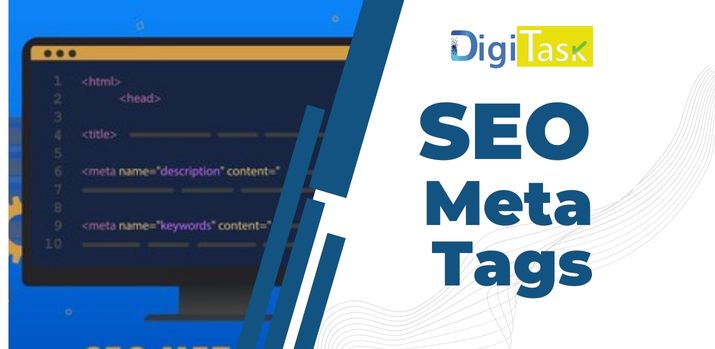All You Need To Know About SEO Meta Tags
Meta tags are a vital part of SEO. They enable search engines to comprehend the content of your website and figure out if it is relevant to a user’s search query. In addition, meta tags also allow you to give a brief description of your website, which can be utilized by search engines in their search results.
While meta tags are not the only factor that determines your website’s ranking on search engines, they are still an important part of SEO and should not be ignored. In this blog, we will give you a brief overview of meta tags and how they can help improve your website’s SEO.
What are meta tags?
Meta tags are essential for optimizing your website for search engines. They provide information about your website that helps search engines index and rank your site appropriately. Meta tags usually come in the form of name-value pairs, with the name specifying the type of tag, and the value specifying the content of the tag.
For example
<head>
<meta name="keywords" content="SEO, meta tags, HTML">
<meta name="description" content="This is a description of my website">
</head>As you can see, meta tags have a name and a content attribute. The name attribute specifies the name of the tag, while the content attribute specifies the content of the tag.
The three most important types of meta tags for SEO
While there are many different types of meta tags, the three most important ones for SEO are the title tag, the meta description tag, and the meta keywords tag.
As a general rule, the title tag is the most important meta tag from an SEO perspective. Its purpose is to tell search engines what the title of the given page is. In order for it to be effective, the title should be both unique and descriptive of the page’s content.
The meta description tag holds the second-highest importance as far as SEO is concerned. Its function is to give search engines a brief overview of what the target page is about. To achieve its purpose, the meta description should be concise while at the same time accurately representing the substance of the page.
The meta keywords tag comes in third in terms of SEO importance. Its objective is to signal to search engines which keywords are related to the page in question. For maximum effectiveness, the keywords used should be related to the page’s content and used sparingly throughout.
What are the benefits of using SEO Meta Tags?
- They can help improve your website’s visibility in search engine results pages (SERPs).
- They can help attract more clicks to your website from SERPs.
- They can help improve the click-through rate (CTR) of your website from SERPs.
- They can help improve the overall SEO of your website.
- They can help make your website more user-friendly and accessible.
How to Use SEO Meta Tags
When using SEO meta tags, it is important to keep a few things in mind. First, use keywords that are relevant to your website and content. Don’t stuff keywords into your tags just for the sake of getting them in there; this will hurt your SEO. Second, make sure your tags are accurate and up-to-date. Outdated or inaccurate tags can confuse search engines and hurt your ranking. Finally, don’t forget to regularly check your tags to ensure they are still effective.
SEO meta tags are a valuable tool for any website, but they must be used correctly to be effective. By following the tips and best practices above, you can make sure your meta tags are working hard for you and helping to improve your website’s SEO.
Tips for Optimizing Your SEO Meta Tags
1. Use relevant and keyword-rich titles
The title of your web page is one of the most important SEO meta tags, as it tells search engines what the page is about. Make sure to include relevant keywords in your title, and try to keep it under 60 characters so that it doesn’t get cut off in search results.
2. Write unique and compelling meta descriptions
The meta description is another important SEO meta tag, as it gives potential visitors a snapshot of what your page is about. Again, make sure to include relevant keywords, and try to keep your meta description under 160 characters.
3. Use the right keyword density
It’s essential to find the right balance of keywords when you’re adding them to your meta tags. Adding too many keywords can trigger search engine spam filters and result in a penalty for your site. But if you don’t include enough keywords, you won’t be able to properly communicate what your page is about to readers. A good guideline is to target a keyword density of 1-2%.
4. Use alt text for images
In addition to including keywords in your text, you can also optimize your images by using alt text. Alt text is a short description of an image that appears in place of the image if it can’t be displayed for some reason. When adding alt text, be sure to include relevant keywords that describe the image.
5. Keep your tags up-to-date
It’s important to regularly check your SEO meta tags to ensure they are still accurate and effective. As you add new content or make changes to your website, be sure to update your tags accordingly. This will help ensure that search engines have the most up-to-date information about your site.
Conclusion
SEO meta tags are important for several reasons. They help search engines understand what a web page is about, which can be beneficial in terms of improving visibility and ranking in search results pages. They can also help to improve the overall SEO of a website. To get the most out of SEO meta tags, it is important to use them correctly and to keep them up-to-date.



